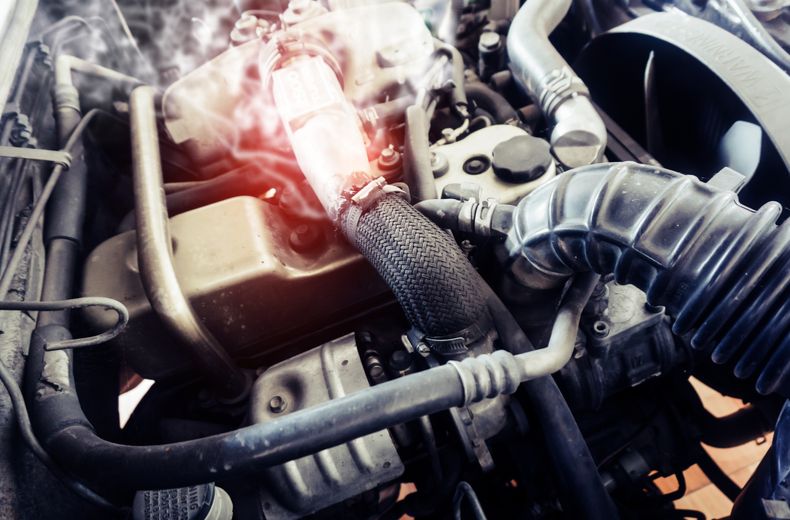Overheating is a sign that something is wrong with your vehicle or its engine. It could be the cooling system or a combination of other faults.
At some point, most vehicles will experience overheating and this is particularly true of cars in hot climates like Nigeria.
However, knowing how to prevent your car from overheating could be the difference between making that journey on time and having your car breakdown on the road. Here are 10 tips to prevent your car from overheating:
1. Park Your Car Where There is Shade
The temperature in the shade will always be milder than that of the open sun. Parking your car in the shade gives it layers of protection against the sun, keeps it cool and enhances the life of your car.
In cases where there is no shade in sight, make use of sunshades to minimise the impact of the heat inside the car.
2. Turn on Heater When Driving
You might be wondering where lies the sense in turning off the air-conditioner only to put on the heater. However, the wisdom lies in the fact that the air-conditioner is connected to the engine while the heater is not.
Also, while the air-conditioner is an added load to the engine and invariably makes it hotter, the heater is there to pull hot air from the engine. This tends to cool down your interior functions.
3. Tint Your Windows
Another way to prevent your car from overheating is the use of window tinting or window film. This keeps the car cooler and serves as a wall between the sun and your car.
Tinting your window will provide your car with UV ray protection but note that you need a tinted glass permit in Nigeria before you can have your windows tinted.
4. Leave Your Car Windows Slightly Open
The accumulation of hot air in your car can lead to overheating. Therefore, leaving your windows a bit open for the hot air to flow out could reduce this.
For cars with sunroof, it becomes easier. Just crack it open. However, you cannot afford to leave a cracked window unattended in case of rain.
5. Check Your Car’s Coolant and Radiator Regularly
To prevent overheating, it is important you always keep an eye on the car’s coolant and radiator. Check to see if the car has enough coolant and water.
Check it every day or once a week before using the car. In the event of a road trip, let the coolant and water be among the first things you check before embarking on the trip. This way, you will be preventing overheating and putting your car in the way of unnecessary risks.
6. Use Car Window Shades
Always have window shades in your car for times when you may not find a covered or shaded area to park. Ultraviolet heat shields prevent the interior from overheating and serve as a buffer against the raging impacts of the sun.
Fitting your car with custom-made window shades could be a game-changer also in preventing overheating.
7. Check the Temperature Gauge
While we are obsessed with the amount of fuel in our fuel tank, we hardly inspect the temperature gauge the same way.
The temperature gauge is a key element in preventing overheating. It tells you if the engine is becoming too hot.
8. Turn Off Car’s Air-Conditioner
Whenever you discover that the engine temperature is rising, turn off your car’s air-conditioner. Like a transformer with a heavy load, your car will experience less load too when the air-conditioner is turned off and the engine will have more time to contain the temperature.
You should also turn your car’s blower in full blast to drain the heat from the engine bay onto the cabin.
9. Check for Leaks
Don’t just head into the road again immediately after pouring coolant and water into your car. Give your car a few minutes to cool. Monitor the temperature to see if it is still rising. If it is, chances are that there is a leak somewhere.
At this point, your best bet is to have the char thoroughly checked by your mechanic.
10. Take Your Car for Regular Maintenance
This is the last but no way the least. Regular maintenance is expected of every car owner for the vehicle to work at optimum capacity.
Adhere to oil changes on every 4828 to 8046 miles. Ensure that the battery is replaced as and when due. Carry out radiator flushes as well. All these could go a long way to preventing your car from overheating.
